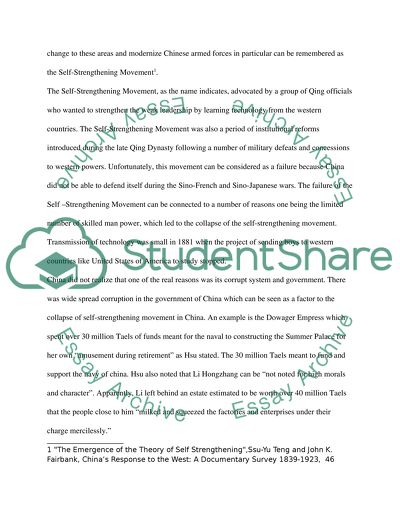Cite this document
(“Self-strengthening movernment in China Essay Example | Topics and Well Written Essays - 1750 words”, n.d.)
Retrieved from https://studentshare.org/history/1470279-self-strengthening-movernment-in-china
Retrieved from https://studentshare.org/history/1470279-self-strengthening-movernment-in-china
(Self-Strengthening Movernment in China Essay Example | Topics and Well Written Essays - 1750 Words)
https://studentshare.org/history/1470279-self-strengthening-movernment-in-china.
https://studentshare.org/history/1470279-self-strengthening-movernment-in-china.
“Self-Strengthening Movernment in China Essay Example | Topics and Well Written Essays - 1750 Words”, n.d. https://studentshare.org/history/1470279-self-strengthening-movernment-in-china.


